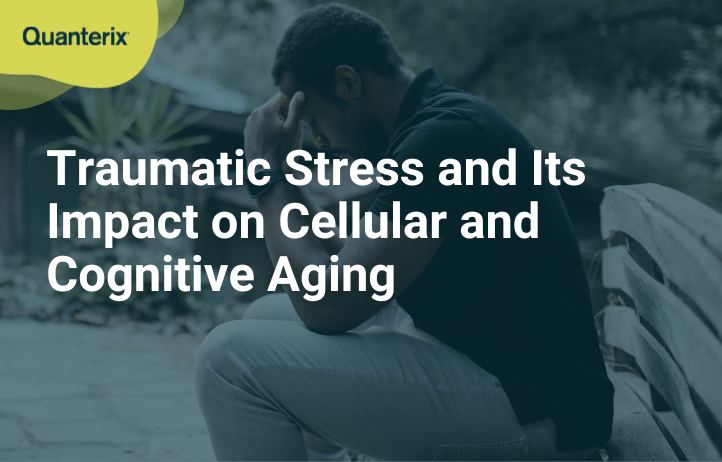
Traumatic Stress and Its Impact on Cellular and Cognitive Aging
Introduction
Traumatic stress and psychiatric symptoms have been associated with accelerated cellular aging and increased risks of dementia, yet the underlying biological mechanisms remain unclear. A recent study, “Longitudinal Study of Traumatic-Stress Related Cellular and Cognitive Aging”, provides new insights into how traumatic stress affects cellular aging, inflammation, and neuropathological changes, contributing to our understanding of stress-induced neurodegeneration.
Study Overview
This longitudinal study examined 214 trauma-exposed military veterans (85% male, average baseline age: 53 years) over approximately 5.6 years, assessing the effects of traumatic stress, psychiatric comorbidities, cellular aging markers, peripheral inflammatory and neuropathological biomarkers, and cognitive functioning.
Analytical Approach: Peripheral Biomarkers of Neuropathology and Inflammation
Plasma biomarkers of neuropathology and inflammation were quantified using Simoa® ultra-sensitive digital immunoassays. These biomarkers included:
- Brain-derived neurotrophic factor (BDNF)
- Tau and amyloid beta (Aβ40, Aβ42)
- Neurofilament Light (NfL) and Glial Fibrillary Acidic Protein (GFAP)
- Cytokine biomarkers: Interleukin-6 (IL-6) and Tumor Necrosis Factor-alpha (TNFα)
All assays were conducted at the Quanterix Accelerator Lab, with plasma samples processed in a single batch for consistency. Simoa technology enabled highly sensitive biomarker detection, providing deeper insight into the association of traumatic stress with molecular aging and cognitive decline.
Key Findings
1. Epigenetic Aging Linked to Neuropathological Biomarkers
- Advanced epigenetic age at baseline (measured using GrimAge) was predictive of increased neuropathological biomarkers, specifically Aβ40, Aβ42, and IL-6.
- These findings suggest epigenetic aging may serve as an early indicator of neurodegenerative processes.
2. Externalizing Behaviors and Accelerated Epigenetic Aging
- Veterans with externalizing psychopathology (e.g., aggression, substance misuse) exhibited faster epigenetic aging, as measured by GrimAge.
- GrimAge also indirectly correlated with increased Aβ40 and Aβ42 levels, suggesting a potential mechanistic link between psychiatric symptoms and neurodegeneration.
3. Neuropathology Biomarkers Correlated with Cognitive Decline
Advanced epigenetic age, higher NfL, and elevated GFAP levels were associated with cognitive impairments, including declines in:
- Working memory
- Executive function
- Verbal memory
- These results indicate that NfL and GFAP may serve as key blood-based predictors of cognitive decline.
Implications and Future Directions
Clinical Relevance of Traumatic Stress and Aging
This study highlights the intricate relationship between traumatic stress and biological aging, emphasizing the need for early interventions to mitigate accelerated aging and its neurodegenerative consequences.
Potential Interventions
- Targeting externalizing behaviors (e.g., substance use treatment, behavioral therapies) may reduce accelerated aging risk.
- Anti-inflammatory therapies and lifestyle interventions (e.g., diet, exercise, and stress reduction techniques) should be further explored for their potential to slow epigenetic aging and neurodegeneration.
Next Steps in Research
- Further research should examine causal mechanisms linking traumatic stress, epigenetic aging, and neuropathological changes.
- Expanding studies to diverse populations will help validate these findings and improve generalizability.
Conclusion
This longitudinal study provides compelling evidence that traumatic stress contributes to accelerated cellular and cognitive aging. By leveraging advanced biomarker technologies like Simoa, researchers can now detect early indicators of neurodegeneration, potentially altering the trajectory of aging-related cognitive decline.
At Quanterix, we support breakthroughs in neurology by providing ultra-sensitive biomarker assays for neurodegenerative diseases and inflammatory disorders. To learn more, explore our Blood Biomarkers of Brain Health brochure and Cytokine Biomarkers for Neurological Disorders publication brief.
Reference
Wolf EJ, Miller MW, Hawn SE, et al. Longitudinal study of traumatic-stress related cellular and cognitive aging. Brain Behav Immun. 2024;115:494-504. doi:10.1016/j.bbi.2023.11.009